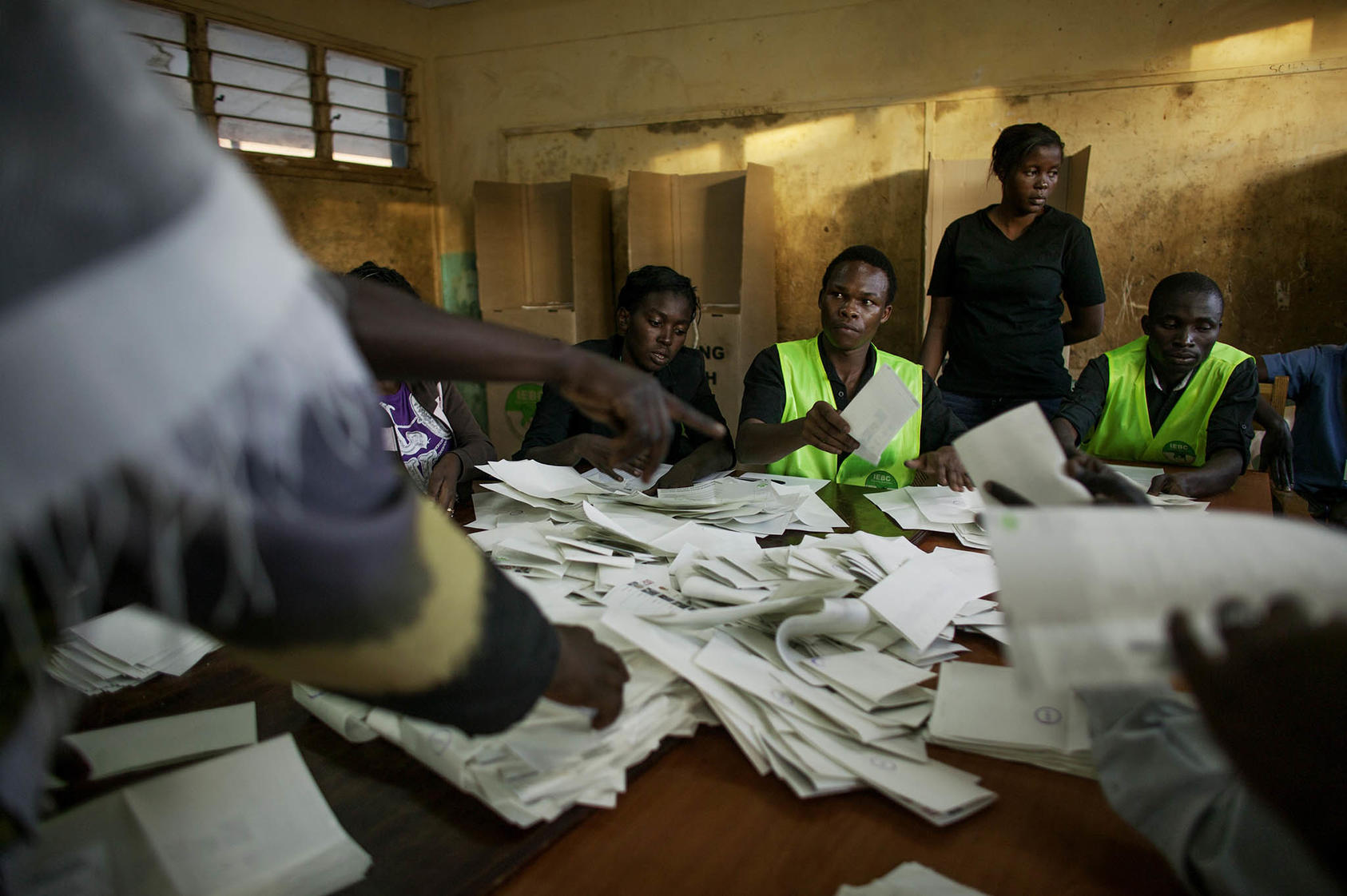Three Early Lessons from Kenya’s Elections
While the results will be contested in court, other countries can still learn from the Kenyan experience.
On August 15, William Ruto was declared president-elect of Kenya, following a vote last week. His chief competitor, Raila Odinga, rejected the results and says he will go to court to seek their invalidation. So far, little evidence of electoral misconduct has been presented, with most observers suggesting the conduct of the polls improved compared to the last vote in 2017. As the country waits for the judicial process to unfold, here are three takeaways from this year’s Kenyan experience.

1. Opinion polls project outcomes, but do not guarantee turnout.
In almost every major opinion poll since May, Odinga led Ruto. Ruto’s victory, though narrow, reversed this trend. Although the election was close, voter turnout in Ruto-supporting areas seems to have made the difference. Although Ruto led the vote in only 20 out of Kenya’s 47 counties, turnout in those counties exceeded 70 percent. In six of those counties, turnout was greater than 75 percent. Meanwhile, turnout in the 27 counties Odinga won was just under 64 percent, and only one Odinga-supporting county surpassed 75 percent turnout. This suggests voters were more enthusiastic about Ruto’s candidacy; Odinga was less able to mobilize voters in areas that supported him, particularly on the coast. In Mombasa county, for example, which Odinga won this year, turnout was under 44 percent, compared to just under 67 percent in 2013 and 60 per cent in August 2017.
2. Transparency helps.
The Independent Electoral and Boundaries Commission (IEBC) quickly posted scanned copies of the results forms from polling stations and constituencies on its public website. This allowed political candidates, the media, analysts and interested citizens to see the data for themselves, and, if they so wished, to conduct their own tabulations. While some misinformation surfaced, this was quickly rebutted by access to the primary data, even if some media were both ill-prepared for the volume of data to be processed and ultimately fearful of pre-empting announcements from the IEBC. Although tempers flared at the national tallying center in Nairobi, having the primary results documents widely available for scrutiny in real time helped limit, at least to an extent, the volume of corrosive rumor and innuendo.
3. The credibility of the election management body is easily squandered.
Thousands of IEBC staff worked diligently to deliver the election. One returning officer lost his life in suspicious circumstances. But senior officials of the commission have questions to answer about their own conduct. Just moments before the results were announced on Monday, four IEBC commissioners held a rival press conference in which they pronounced “we cannot take ownership of the results that are going to be announced.” The following day, the same group of commissioners held a second press conference in which they alleged mathematical errors in the announced results. The supposed errors the commissioners identify are the result of rounding percentages to two decimal places, rather than three (or more), and, in any case, would not change the outcome. Poor mathematics aside, this public display of division in the commission only fuels doubts about the electoral commission’s competence. The inability of the commissioners to resolve their differences and act professionally and collectively taints the commission and diminishes public confidence in the institution. That said, there are legitimate questions to raise about the commission’s performance and process, which are likely to be the focus of any court challenge.



